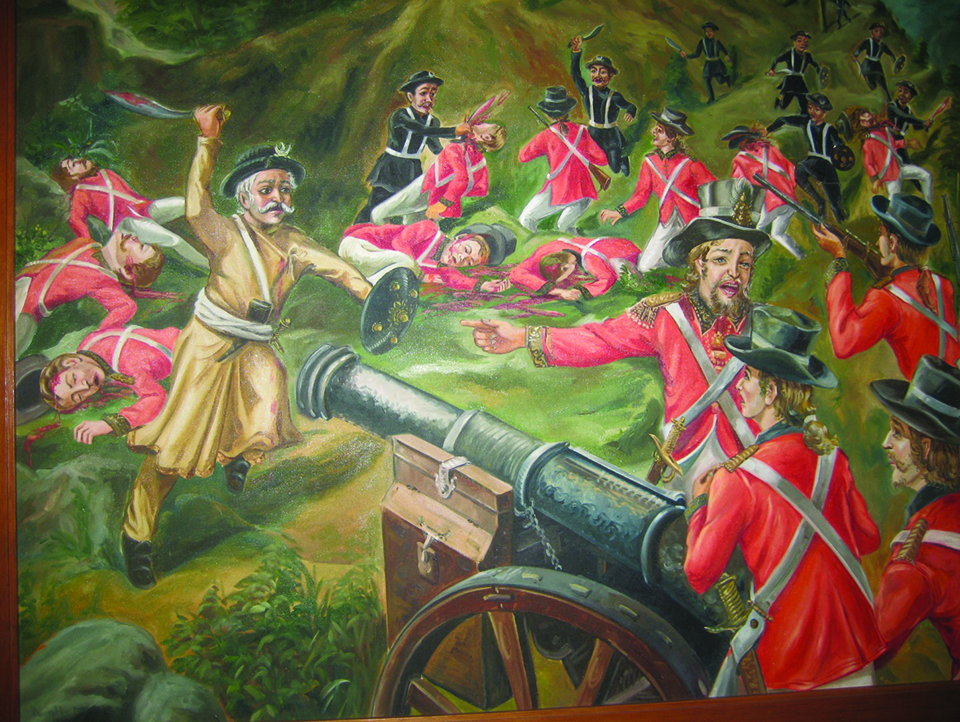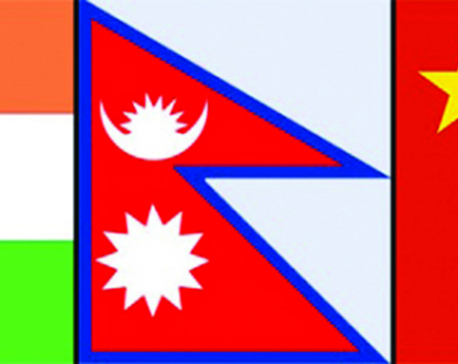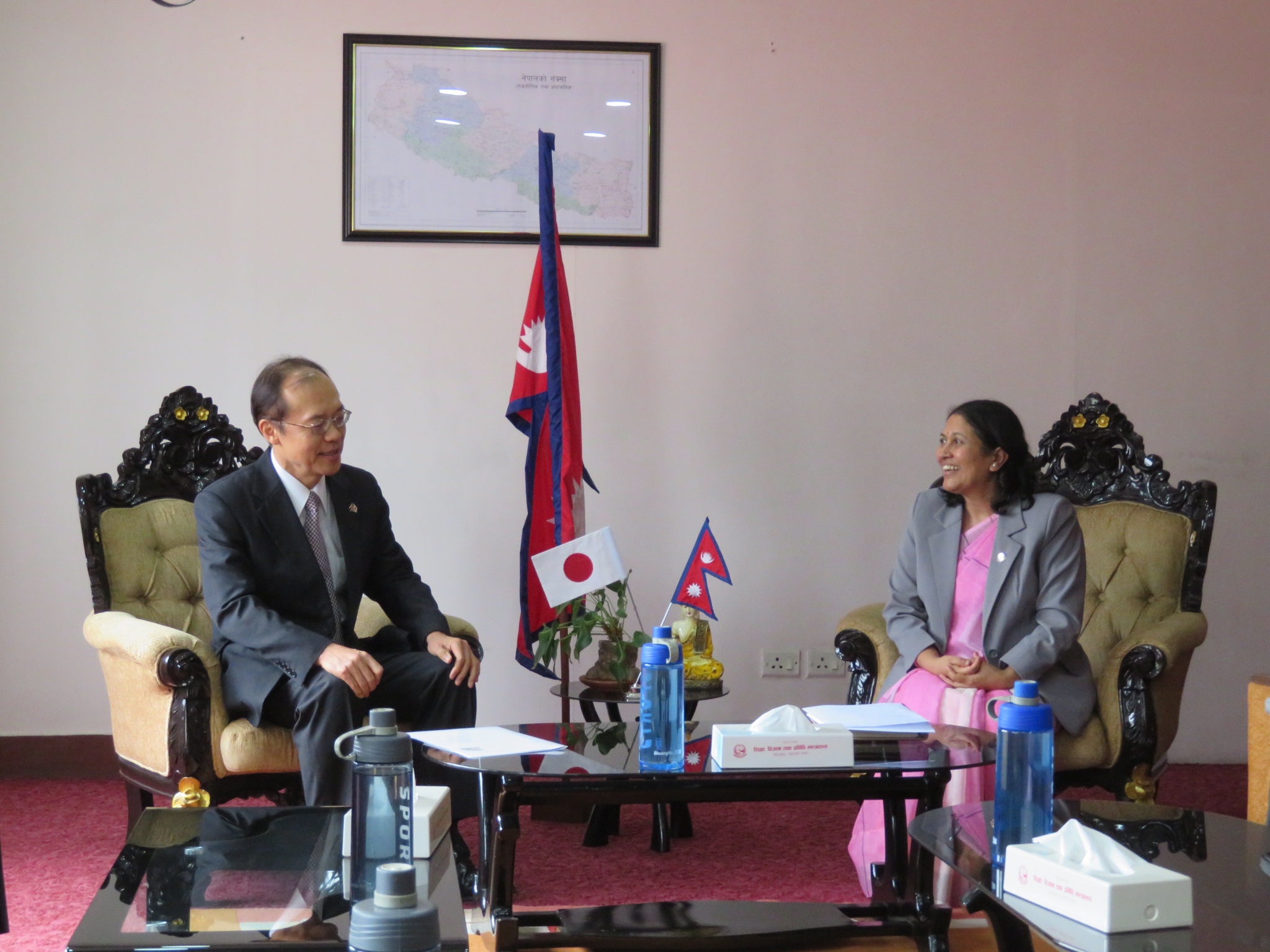
OR


Prem Singh Basnyat
Prem Singh Basnyat is a Brigadier General (Retired) of Nepal Army. PhD in military history, he has authored several books on military and political history of Nepal, besides being a visiting lecturer to universities in Nepal and abroad. He is also the Chairman of Nepal Museum Association.basnyatp@hotmail.com
After Nepal ratified Sugauli Treaty following the war with British India, Nepal’s politics, history and economy changed. Here is how
The East India Company formally declared war against Nepal on November 1, 1814. The British were badly defeated in Butwal, Parsa and Jaithak areas but emerged victorious in Kumaon and Garhwal in the first phase. In the second phase, Nepal lost war in Hariharpur Gadhi and Makawanpur and was compelled to sign Sugauli Treaty. The war, referred to as Anglo-Nepal War in Nepal’s military history, changed Nepal’s politics, economy and social life forever. It is always worthwhile reviewing how.
One good thing about it was professional military training for Nepali soldiers. After Sugauli Treaty, Chhaunis (barracks) were set up for stationing army troops. The Army Headquarters in Chhauni, Balaju Manufacturing Arsenal and Swayambhu Barudkhana (gunpowder factory), among others, were established after 1816. After bringing in army officers from France, advanced trainings were conducted for Nepal Army. Military facilities were also increased. To enhance the professional quality, military organization was made more efficient.
When they came in contact with British troops or British troops of Indian origin, Nepali army men attained awareness about education, medical system, eating habits and lifestyle.
Although Nepalis were defeated, their fighting skills, fearlessness and bravery were acclaimed worldwide. The British themselves took this message home and across Europe. From this point onward, Nepali soldiers came to be known as the ‘bravest of the brave.’ Needless to say, military facilities of the East India Company were better than Nepal’s. The British officers were educated and there was no caste-based discrimination among them. When Nepalis started to join British Army as Lahures, they contributed to enhancing Nepal’s economic, social, political and education sectors. Wherever Lahures went they lived with discipline and honesty. Nepal chose to ratify Sugauli Treaty instead of colonization. The only independent nation in South Asia at that time, Nepal remained independent forever.
Loss of glory
Anglo-Nepal War was costly in many ways. For one, Nepal lost about half of the total territories due to this war. The house of Nepal built by efforts of visionary kings like Drabya Shah, Ram Shah, Prithvi Narayan Shah, Queen Rajendra Laxmi, Prince Bahadur Shah and Bhimsen Thapa collapsed like a house of cards.
Before the Anglo-Nepal War, Nepali border was linked with Bay of Bengal and the country had access to the sea. But following the war, our border came to be limited to Mechi in the east and Mahakali in the west. The country lost its access to the sea. The eastern part would touch upon the Ganges and Bay of Bengal. If Nepal had not lost that area, the country would not have become landlocked. Nepal lost hundreds of brave men and women. Hundreds of brave women had also fought in Nalapani, Jaithak and Malaun forts. Besides, Nepal had to spend a great deal of financial resources in the wars. A lot of Nepali troops were dissatisfied after Sugauli Treaty. Many, including the commander of Nalapani battle, left Nepal for foreign army employment. Balabhadra Kunwar was recruited in Punjab Army. Meanwhile, Bada Kaji Amar Singh Thapa got voluntary retirement and went to Bhotang, Sindhupalchok to spend peaceful life. Thapa passed away while meditating at Gosainkunda, Rasuwa.
Nepalis started joining the British Indian Army for the sake of ‘economic gains’. It is not good for the national prestige. During the World War I and II, Rana rulers would look for the Nepali youths in order to get them recruited in the British Army. That practice was forcibly imposed on Nepalis following the defeat in the war. Even today, Nepalis have been working with the Indian and British armies. The British India started trade with Tibet directly after capturing Kumaon and Sikkim. That resulted in a huge economic loss to Nepal.
Following the Sugauli Treaty, politics was marred by different political factions and sub-factions because of the courtiers’ ambitions to capture the state power. Majority of the kings were juvenile and the state power was vested in the hands of queens. Politics was vulnerable because of tussles among the courtiers. Consequently, prime ministers were murdered. Kot Massacre and Bhandarkhal Massacre ultimately firmly established Rana rule.
A British residency was officially opened in Kathmandu. For Britain, it was a political success. During the Rana rule, British Residency collected thousands of invaluable archives and goods and sent them to Britain, which have been presently on display at British Library, London, and University of Oxford. We lost invaluable source of our own history and past.
Then the British began interfering in Nepali politics. Various conspiracies were hatched to create conflict among Queens, Pandey and Thapa factions. Ultimately, after the Kot Parva, Britain became Nepal’s international guardian for 104 years.
The then British India had established Nusseeree Battalion, the first Gorkha unit in Subathu, India consisting of Nepali Army who had deserted battlefield of Kumaon and Garhwal fronts. The legacy of recruiting Nepali youths in British Gorkha and Indian Gorkha continues to this day. Because Nepali Gurkhas are mobilized in several international disputes, it has given rise to a hostile feeling of international community toward Nepal.
Taksari Chandra Shekhar Upadhyaya was good in speaking, reading and writing English. He served as an interpreter between the British and Nepal. Nepal sent him to British India for diplomatic negotiations. He is supposed to have been bribed during the negotiation and his wrong interpretations about Tarai resulted in huge loss of Tarai lands in Sugauli Treaty.
British India was willing to return lost Nepali territories to Nepal before quitting India in 1947. The last Governor General of the East India Company, Lord Mountbatten is said to have made personal approach to then Rana Prime Minister Padma Shamsher for this. But class war within the Rana clan had made the prime minister weak. They advised him against taking the lost territories. Nepal missed that great opportunity. The vast swath of land that should have been ours belongs to India today.
Reaching out
Our engagement as nation began rather unpromisingly with the war but by then British fascination with Nepal had already begun. A member of the mission tasked with conducting the tense exchanges before the war was Alexander Buchanan-Hamilton, who made some early and excellent notes and drawings on Nepal’s unique flora and fauna.
Sugauli Treaty established Nepal’s full relationship with Britain. Nepal became an ally of British power. We were Britain’s only such partner between 1816 and 1951. With the visit of Jang Bahadur Rana to Britain in 1850, Nepal and Britain came to become equal nations in terms of relations. Queen Victoria saw him at least six times during his stay there. Jang Bahadur in turn became an enthusiast for all things British. He brought back British architecture, and he started the process of educating the Nepali ruling class in the UK.
Chandra Shamser’s visit to UK in 1908 kept up the momentum but the next real watershed moment was the signature in 1923 of the Treaty under which the British accepted in writing that Nepal was an independent nation. This was crucial to Nepal’s future. Without it, with Indian independence in 1947, it would have been hard for Nepal to remain a separate independent entity.
In the 20th century, growing British love affair with Nepal manifested in many British coming to Nepal for mountaineering. That quest was embodied in George Mallory, who died climbing Everest in 1924 and whose body was only recently found. Nobody knows whether or not he got to the top, but as we all know, in 1953 a British expedition led by John Hunt did succeed in putting the New Zealander Ed Hillary and Tenzing Norgay on the top. When this news reached Britain on the day of coronation of the queen, British people erupted in joy.
Tens of thousands of Gurkhas gave their lives for the British cause in two World Wars and they have won many of our highest decorations for bravery. They have in turn given recognition to Nepal, as home of some of the world’s best, most professional and dedicated soldiers. And the money they have earned has, over the years, done much for the prosperity of their communities, communities which we look after today through the work of the Gurkha Welfare Scheme.
In the past, Nepal mattered because it was surrounded by countries which we either ruled or influenced. Nepal does not have that advantage today. Nepal, therefore, needs to become a beacon of stability and democracy.
Basnyat, Brigadier General (retired) of Nepal Army, is the author of “Anglo-Nepal War: A Military Review”
You May Like This

Erratic pattern
Agriculture in Nepal is suffering from years of under-investment, limited research, scant inputs and lack of technology and services for... Read More...

Restricting investment
Nepal must adopt liberal laws and provide much better opportunities than other Asian countries if it is to become an attractive... Read More...

Nepal should hedge
How should Nepal respond to a changing security context and handle pressures from greater powers like India and China? ... Read More...











Just In
- Nepal at high risk of Chandipura virus
- Japanese envoy calls on Minister Bhattarai, discusses further enhancing exchange through education between Japan and Nepal
- Heavy rainfall likely in Bagmati and Sudurpaschim provinces
- Bangladesh protest leaders taken from hospital by police
- Challenges Confronting the New Coalition
- NRB introduces cautiously flexible measures to address ongoing slowdown in various economic sectors
- Forced Covid-19 cremations: is it too late for redemption?
- NRB to provide collateral-free loans to foreign employment seekers







Leave A Comment